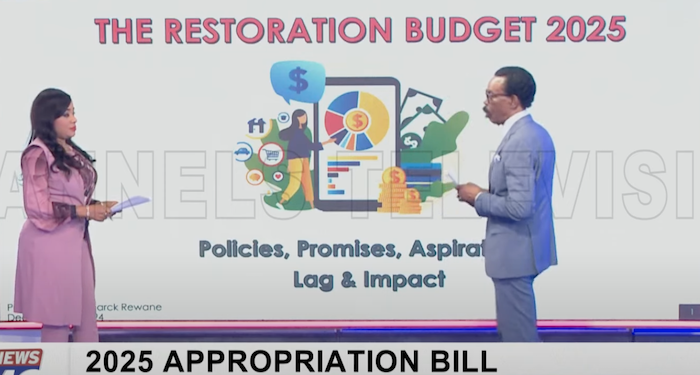The federal government’s ambition to achieve a $1 trillion Gross Domestic Product (GDP) economy lacks a clear roadmap, according to Mr. Bismarck Rewane, Managing Director of Financial Derivatives Company Limited (FDC). Rewane compared the target to “aiming for the moon” during his presentation at the Lagos Business School’s December 2024 Breakfast session titled “Economic Reform 2023/2024: Economy on a Mend or at a Bend.”
Rewane highlighted the absence of a detailed development strategy as a significant impediment to achieving the lofty economic goals set by President Bola Tinubu’s administration.
Economic Reforms and Current Realities
The administration’s macroeconomic objectives for the next eight years include achieving:
- A $1 trillion GDP
- An annual growth rate of 7.0%
- Single-digit inflation of 9.0%
- An exchange rate of ₦900/$
To realize these, the government has pursued reforms such as subsidy removal, a managed floating exchange rate, tax reforms, and monetary tightening.
However, 19 months into these reforms, Rewane’s data revealed modest economic progress. Real GDP growth increased by just 0.34%, from 2.86% in 2023 to 3.2% in 2024, while inflation surged from 24.7% to 33.2%. The official exchange rate jumped from ₦889/$ to ₦1,603/$, a 43.92% change, with the naira remaining undervalued by 26.53%.
Gains and Setbacks
Despite the challenges, the scorecard showed some positive trends:
- Nigeria’s trade balance improved significantly from $3.5 billion in 2023 to $13.78 billion in 2024.
- Stock market capitalization grew by 51.92%, from ₦39.56 trillion to ₦58.3 trillion.
- External reserves increased by 22.26%, reaching $40.2 billion in 2024.
However, fiscal deficits worsened slightly, moving from -5.4% to -5.6% of GDP, and the national debt ballooned by 190.35%, from ₦46.25 trillion in 2023 to ₦134.29 trillion in 2024.
Corporate Sector and Currency Outlook
Rewane observed mixed outcomes for corporations, with some firms recording forex losses totaling ₦1.7 trillion, while top banks reported gains of ₦1.4 trillion.
On the exchange rate, he forecasted the naira trading at ₦1,550/$ by February 2025 but noted persistent misalignment in market rates. While the naira’s fair value stands at ₦1,151.26/$, parallel market rates hover at ₦1,620/$, reflecting a significant undervaluation.
Projections for 2025
Rewane concluded on a cautiously optimistic note, predicting sustained economic growth in 2025. He emphasized that while higher interest rates could spur savings, they might also lead to increased default rates. The reforms, he said, aim to break a decade-long trend of sluggish growth but require stronger policy credibility to succeed.


